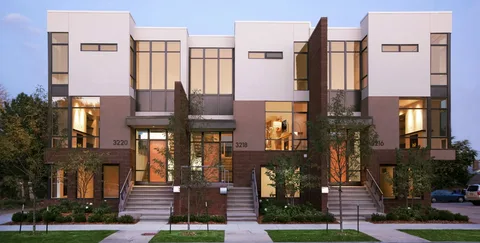Buying an apartment is a significant investment that requires careful consideration. Whether you’re a first-time buyer or a seasoned investor, there are several key factors you need to evaluate before making a decision. Here are the top 5 things to look for when buying an apartment to ensure that it meets your needs, fits your budget, and offers long-term value.
1. Location, Location, Location
The location of an apartment is arguably the most important factor when making your decision. A good location can add value to the property and enhance your living experience. Here’s what to consider:
- Proximity to Work/School: Choose a location that minimizes your daily commute. An apartment near your workplace or school will save you time and transportation costs.
- Amenities and Services: Make sure the apartment is close to essential services such as grocery stores, hospitals, shopping centers, public transport, and recreational spaces like parks or gyms.
- Safety and Crime Rates: Research the crime rate in the area to ensure you’re moving to a safe neighborhood. Websites like NeighborhoodScout and local police websites can provide crime statistics.
- Future Development Plans: Investigate any upcoming construction or zoning plans for the area. New developments might increase the property value over time, but they could also lead to noise or traffic disruptions in the short term.
2. Building Quality and Condition
The quality and condition of the building itself are critical factors in making an informed choice. You want to ensure the apartment you purchase is built to last and that there are no underlying issues that could require costly repairs down the line.
- Age of the Building: Older buildings often have charm but may require more maintenance. Check if the building has been well-maintained over the years. If it’s a new development, ensure that construction standards meet your expectations.
- Common Area Maintenance: Inspect the building’s common areas, such as hallways, elevators, parking spaces, and amenities (e.g., gym, pool, lobby). A well-maintained building often indicates that the property management takes care of the overall upkeep.
- Structural Issues: Look for any signs of damage, such as cracks in walls or ceilings, water stains, or mold. These could indicate major problems with the building’s structure or plumbing.
3. Apartment Layout and Size
The apartment’s layout and size will directly affect your comfort and living experience. A well-designed apartment maximizes space and enhances daily functionality.
- Room Sizes and Layout: Consider whether the apartment’s layout suits your lifestyle. Is the kitchen open and spacious? Does the living room offer enough space for your furniture? Make sure the apartment’s flow makes sense for your daily needs.
- Storage Space: Check for adequate storage options, including closets, cabinets, and other spaces for your belongings. Lack of storage can lead to clutter, so ensure the apartment has enough room to accommodate all your items.
- Natural Light and Ventilation: Good natural light and proper ventilation make the apartment feel more spacious and healthier. Check how many windows the apartment has and whether they open to allow fresh air in. Avoid apartments that feel dark and stuffy.
4. Price and Affordability
The price of the apartment is one of the most important factors, but affordability goes beyond just the asking price. It’s crucial to factor in other costs and ensure the property fits within your long-term financial plans.
- Purchase Price: Make sure the apartment is priced within your budget and aligns with comparable properties in the area. If the price seems too high, negotiate with the seller or reconsider your choice.
- Mortgage and Interest Rates: Ensure you’re comfortable with the mortgage payments, interest rates, and loan terms. Use mortgage calculators to estimate monthly payments and determine whether it fits within your budget.
- Additional Costs: Be aware of other costs, including property taxes, homeowners association (HOA) fees, maintenance fees, and insurance. These can add up, so factor them into your overall budget.
5. Legal and Documentation
Before committing to purchasing an apartment, it’s essential to ensure all legal aspects are in order. Legal issues can lead to costly delays or even make the apartment uninhabitable.
- Title Deed and Ownership: Verify that the seller has clear ownership of the property and that there are no legal disputes or outstanding debts on the property. A legal advisor or real estate agent can help confirm that the property has a clean title.
- Condominium Association Rules: If the apartment is part of a condominium or apartment complex, review the condominium association’s rules and regulations. Some buildings have restrictions on pets, renting out the property, or making modifications to the apartment.
- Property Documentation: Ensure all documentation related to the property is in order, such as building permits, inspection reports, and maintenance records. This can help you avoid future legal issues or surprises after moving in.
Key Takeaways
- Location: Choose an apartment in a safe, convenient area close to work, amenities, and public transport.
- Building Quality: Inspect the building’s condition and maintenance to avoid hidden problems.
- Layout and Size: Ensure the apartment’s layout and size suit your needs, and check for adequate storage and natural light.
- Affordability: Consider the total cost of ownership, including the purchase price, mortgage, and additional fees.
- Legal Check: Confirm that the apartment has clear legal ownership, and review any restrictions or rules that may affect your living experience.
By considering these key factors, you can make a well-informed decision and choose the right apartment to buy. The right property will not only meet your immediate needs but also provide long-term value and peace of mind.


